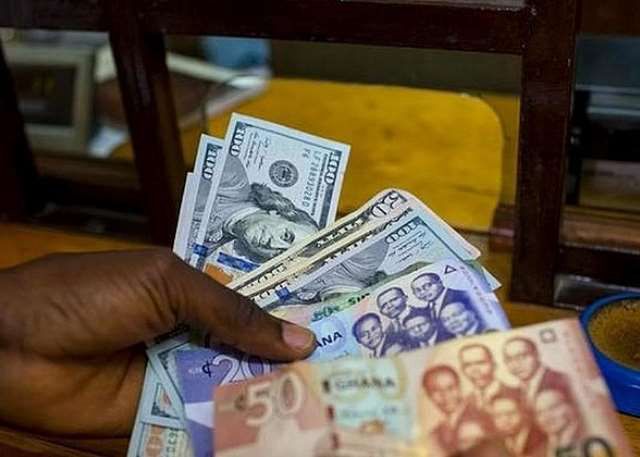The Ghanaian Cedi Demonstrates Resilience Against Major Currencies
As of April 11, 2025, the Ghanaian cedi exhibits stability against major international currencies, particularly the US dollar. Data from Cedirates.com, a reliable source for currency information in Ghana, reveals a buying rate of GHS15.43 per dollar and a selling rate of GHS15.86. This indicates a relatively narrow spread between buying and selling rates, suggesting a balanced market with consistent demand and supply dynamics. The stability of the cedi against the dollar signifies positive economic sentiment and potential resilience against external shocks. This stability contributes to predictability in international trade and investments, fostering confidence in the Ghanaian economy. Furthermore, it helps control inflationary pressures by limiting the impact of imported inflation, thus safeguarding the purchasing power of Ghanaian consumers.
Forex Bureaus and Interbank Market Reflect Minor Variations in Cedi Exchange Rates
At forex bureaus, typically catering to smaller transactions and individual customers, the exchange rates show slight variations. The buying rate for the dollar stands at GHS15.75, while the selling rate is GHS16.05. This difference reflects the margin earned by forex bureaus for their services. The interbank market, where larger financial institutions conduct currency transactions, exhibits slightly lower rates. The cedi trades at GHS15.52 for buying dollars and GHS15.53 for selling dollars. This minimal difference between buying and selling rates in the interbank market indicates efficient price discovery and greater liquidity, typical of wholesale currency trading.
British Pound and Euro Exchange Rates Maintain Stability Against the Cedi
The Ghanaian cedi also exhibits stability against the British pound and the euro. The average exchange rate for converting pounds to cedis is GHS19.86, while converting cedis to pounds averages GHS20.56. For the euro, the rates are GHS17.06 for exchanging euros for cedis and GHS17.79 for converting cedis to euros. These stable exchange rates against the pound and euro further underscore the cedi’s resilience in the international currency market. This stability facilitates trade and investment flows between Ghana and European countries, fostering economic partnerships and growth.
Bank of Ghana Interbank Market Provides Benchmark for Pound and Euro Exchange Rates
The Bank of Ghana’s interbank market plays a crucial role in setting benchmark exchange rates for the pound and euro. The pound is selling at GHS20.09, while the euro trades at GHS17.37. These rates serve as a reference point for other financial institutions and contribute to transparency and stability in the forex market. The Bank of Ghana’s active participation in the interbank market helps to manage volatility and ensure the smooth functioning of the currency exchange system, contributing to macroeconomic stability.
Money Transfer Services Offer Competitive Exchange Rates for Remittances
Money transfer services, such as LemFi and Afriex, offer competitive exchange rates for remittances from the US or the UK to Ghana. For dollar transfers, LemFi offers GHS15.39 per dollar, while Afriex provides a slightly higher rate of GHS15.50. For the British pound, LemFi’s rate is GHS19.80, and Afriex offers GHS20.12. For euro transfers, Afriex provides a rate of GHS17.28, while LemFi offers GHS16.95 per euro. These competitive rates benefit individuals sending money to Ghana, maximizing the value of their remittances and contributing to the flow of foreign currency into the country.
Digital Subscription Payments Incur Slightly Higher Exchange Rates
Digital subscription payments for services like Netflix, Spotify, or Apple Music using Visa and Mastercard incur slightly higher exchange rates, standing at GHS16.64 per dollar for both card types. This difference is likely attributed to processing fees and other charges associated with international transactions. While slightly higher than the interbank and money transfer rates, these rates remain relatively competitive and reflect the convenience of using international payment platforms for digital services. This accessibility to international digital content contributes to the overall quality of life and access to information and entertainment in Ghana.


